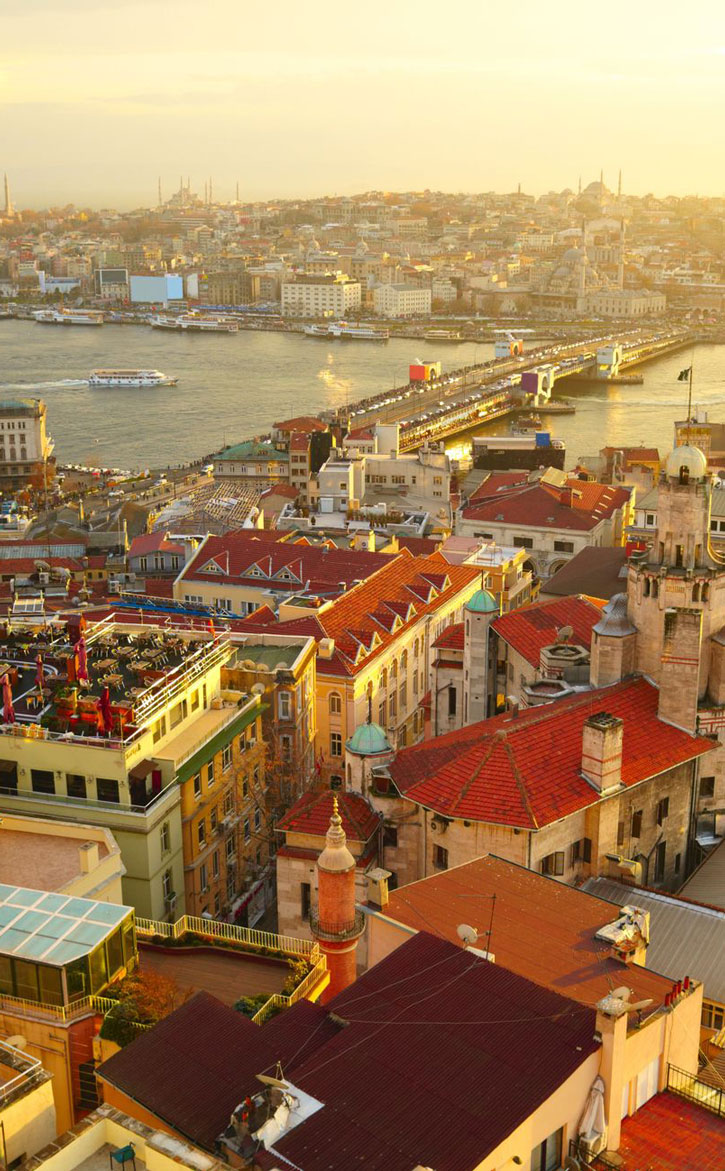
Beautiful Istanbul at sunset. Photo © silverjohn/123rf.
The shoulder seasons, early March-late May and mid-September-mid-November, offer milder weather, sparser crowds, and better deals on airfares and hotels. Spring heralds Istanbul’s annual tulip celebration and the city’s world-renowned arts festivals. Wine aesthetes uncork their passion in Thrace, Çeşme, or Cappadocia at the end of September, just in time for the grape harvest.
Ramadan, the month of Islamic fasting between sunrise and sunset, is based on the lunar calendar and will fall during summer for at least the next decade. Ramadan affects tourists in a minor way. The practice translates into low-energy staff and cranky cabbies but also presents occasion to partake in festivities including the breaking of bread over a hearty Iftar (breaking the fast) meal proffered by many eateries throughout the country.
To visit Turkey for tourism or commerce, you need a valid passport and an e-visa. Visas for work or study are obtained through embassies and consulates. Obtaining visas when you enter the country is no longer possible as of 2014. There are no medical requirements to enter Turkey.
Excerpted from the Second Edition of Moon Istanbul & the Turkish Coast.